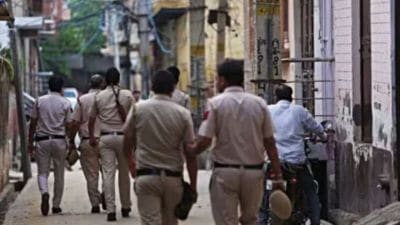IISc study warns tunnel roads may undermine Bengaluru’s public transit systems
The study shows that with the tunnel road project, the metro system could experience a ridership reduction of 6.48 per cent.
 Environmentalists and civic activists criticised the apparent lack of transparency and due process in implementing such infrastructure projects.
Environmentalists and civic activists criticised the apparent lack of transparency and due process in implementing such infrastructure projects. A recent study by IISc Bengaluru Sustainable Transportation Lab has raised concerns about the adverse impacts of proposed tunnel roads on Bengaluru’s Mass Rapid Transit Systems (MRTS), including metro and suburban rail networks. The findings, presented during an event on Friday, underscored the importance of prioritising integrated public transport for sustainable urban mobility.
Coincidentally, the same day, Bruhat Bengaluru Mahanagara Palike (BBMP) published the final feasibility report on the Comprehensive Bengaluru City Traffic Management Infrastructure Plan prepared by Altinok Consulting Engineering. The report consists of a detailed feasibility study on the proposed 170-km network of tunnels, double-decker passageways, elevated corridors, and underpasses to streamline mobility and decongest Bengaluru traffic.
Speaking at the event titled “Misplaced Priorities of BBMP’s Infrastructure Projects (Tunnel Road, Sky-Deck, et al),” organised by CIVIC-Bangalore at Gandhi Bhavan, Prof Ashish Verma of the Indian Institute of Science (IISc) presented a detailed study on the impacts of Bengaluru’s proposed transportation projects.
The study, “Scenario Evaluation for the Proposed Suburban Rail Network and Metro Rail Network for the Bangalore Metropolitan Region (BMR),” evaluates the integration of suburban and metro rail systems to tackle severe traffic congestion and pollution in the city. The study suggests that introducing double-decker roads and tunnel corridors could lead to a significant shift from public to private vehicle usage. The transport mode share for MRTS is estimated to drop from 43.5 per cent to 42.2 per cent by 2041 under these scenarios, reducing overall public transport and non-motorised transport (NMT) usage from 81.9 per cent to 75.6 per cent.
The study shows that with the tunnel road, the metro system could experience a ridership reduction of 6.48 per cent on major lines. Similarly, suburban rail corridors, designed to accommodate high passenger volumes, may also see decreased efficiency. For instance, Corridor 3 (Kengeri-Whitefield) could experience a 9.21 per cent drop in peak hour passengers per hour per direction.
According to the research, a well-coordinated metro and suburban rail network, supported by strategic investments in capacity expansion and seamless interchanges, can sustainably accommodate future demand. By 2041, the MRTS is projected to handle over 86 lakh daily riders without tunnel roads, reducing dependence on fossil fuels and lowering greenhouse gas emissions, the study reveals.
Citizen-led campaign gains momentum
In the wake of an online campaign led by civic activist Kathyayini Chamaraj, citizen-led groups in Bengaluru have started rallying against the proposed tunnel road project, which is being championed by Deputy Chief Minister and Bengaluru Development Minister D K Shivakumar. Activists have deemed the project ill-planned and ad hoc, prompting plans for seminars and discussions to oppose it.
Former additional chief secretary A Ravindra revealed that a memorandum is being prepared for submission to Chief Minister Siddaramaiah and Deputy CM D K Shivakumar, urging them to reconsider the project in favour of sustainable and inclusive transportation solutions.
‘Misplaced priorities’
Environmentalists and civic activists criticised the apparent lack of transparency and due process in implementing such infrastructure projects. D T Devare of the Bangalore Environment Trust, Rajkumar Dugar of Citizens for Citizens, and Sandeep Anirudhan of Citizens’ Agenda for Bengaluru highlighted ‘violations’ of the 74th Constitutional Amendment Act and the ‘absence’ of an Environmental Impact Assessment (EIA) for the tunnel road project.
They blamed the absence of an elected council in the BBMP for the ‘inefficiency’ of key planning bodies like the Bengaluru Metropolitan Land Transport Authority (BMLTA) and the Metropolitan Planning Committee (MPC). They emphasised that Bengaluru should draw lessons from successful public transport systems in cities like Singapore, Tokyo, and London.
Focus on fundamental needs
Kathyayini Chamaraj, Executive Trustee, CIVIC-Bangalore, criticised the government’s focus on expensive infrastructure projects while neglecting essential sectors like early childhood care, education, and healthcare. “Until basic human development needs are met, funds should not be spent on such vanity projects,” she asserted.







